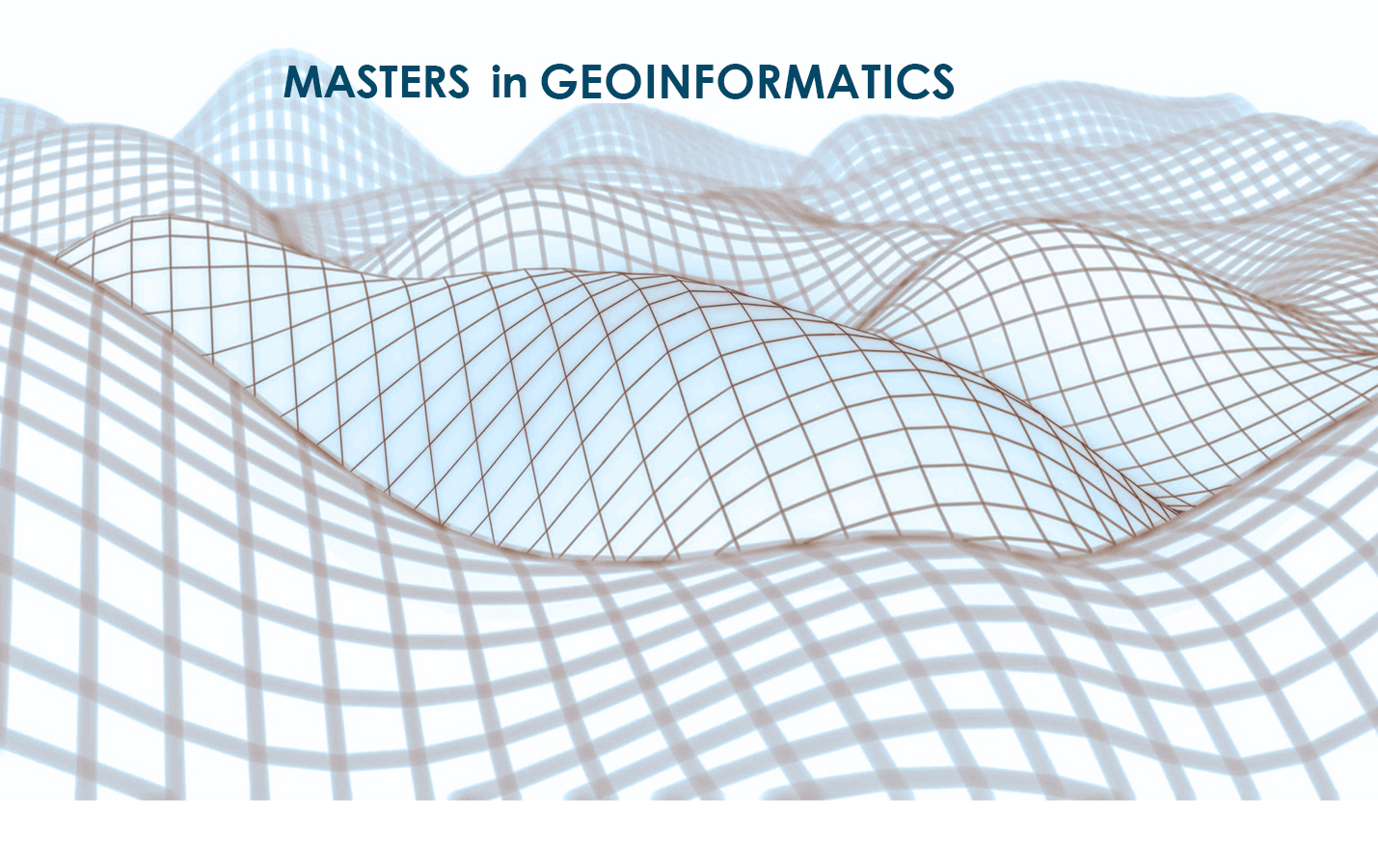Scope
Geoinformatics for the Built Environment will provides vital spatial knowledge about the built environment.
Our program will expose students to the use of advanced techniques in data collection and analysis, spatial information modeling and the visualization of data.
This will help Geoinformatics professionals to easily find jobs in (international) companies, universities and governmental institutes.
The
Planning Commission, Government of India has floated the idea of the National
GIS during early 2000s. It has established an Interim Core Group (ICG) to
prepare a blueprint for the development of the National GIS. It was with a
vision to establish a national “GIS Platform” through an organizational
structure of Indian National GIS Organization (INGO). The Planning Commission
envisaged that the NGIS could become a fundamental component of India’s
planning and developmental infrastructure, providing visibility into various
aspects of the national economic and governance process, development process,
etc and at the same time also bringing value to enterprise commerce and citizen
services, truly making it a national system. As a result, majority of the
Ministries are now using GIS, several industries have come up, both at hardware
and software based, the job market perspective has observed changed. What is
needed is skilled manpower and well-learned qualified youths to serve the national
level important domain.
The country needs several more colleges and
universities to take initiatives and start the Education in Geoinformatics.
Program Learning and outcomes:
Analyze the problem and cases from geo-spatial perspective
Identify and explain principles, concepts, methods and techniques relevant for spatial analysis and earth observations
Use and design models to simulate or study processes in the system earth with a spatial tool.
Explore the temporal and social context of geoinformatics science and technology and be able to integrate these insights in the scientific work.
Analyze scientific and practical domain problem in a systematic manner and develop scientifically valid solutions for these problems in a societal context.
Operate professionally and ethically in a multi-cultural environment.
Independently design and carry out research in the domain according to scientific quality standards.
Explain and contrast Contextual difference that influence the collection classification and visualization of spatial information.
Communicate both orally and in writing on findings of research work to specialists and non-specialist.
Career Opportunities & Prospects:
Project Coordinator/ Manager
Project Scientist
Image Analyst
Team Managers & Infrastructure Field Expert
Geo-Spatial Engineer
Web developer
Infrastructure Planning
SMART City Experts
Geographical Information Systems (GIS) Expert
Geographical Information Systems (GIS) Environment Analyst
Research Associate/ Scholar in institution
Data analyst
Digital data making
GIS in tourism
GIS analyst in heritage
GIS analyst in business analyst
GIS analyst in social media marketing
GIS analyst in Geology
GIS expert in local governing in body
Statistical data modelling
Natural resource management
Drone based analyst
Disaster management through GIS expertise
Course curriculum:
SEMESTER 1
|
Subject Code |
Subject Title |
|
|
GE 101 |
Fundamentals of Remote Sensing |
|
|
GE 102 |
Fundamentals of GIS and GPS |
|
|
GE 103 |
Practical in Spatial Data Processing |
|
|
GE 104 |
Basics of Photogrammetry |
|
|
GE 105 |
Applied statistics and computing |
|
|
GE 106 |
Database Management Systems: Concepts and Methods |
|
|
GE107 |
Studio -1 Geographical Information Science |
SEMESTER 2
|
Subject Code |
Subject Title |
|
|
GE 201 |
Digital Image Processing: Theory |
|
|
GE 202 |
Geospatial analysis: Theory |
|
|
GE 203 |
Digital Image Processing: Practical |
|
|
GE 204 |
Practical in Geospatial analysis |
|
|
GE 205 |
Advance Surveying and field work |
|
|
GE 206 |
Open source GIS |
|
|
GE 207 |
Studio -2 GIS for Governance |
Summer Internship (2 months)
SEMESTER 3
|
Subject Code |
Subject Title |
|
|
GE 301 |
Advances in Remote Sensing |
|
|
GE 302 |
Advances in GIS |
|
|
GE 303 |
Practical in Advance Geospatial analysis |
|
|
GE 304 |
Web and Mobile GIS |
|
|
GE 305 |
Research Methodology and Project Management |
|
|
GE 306 |
Studio -3 Advance Geospatial Technology |
SEMESTER 4
|
Subject Code |
Subject Title |
|
|
GE 401 |
Thesis |

